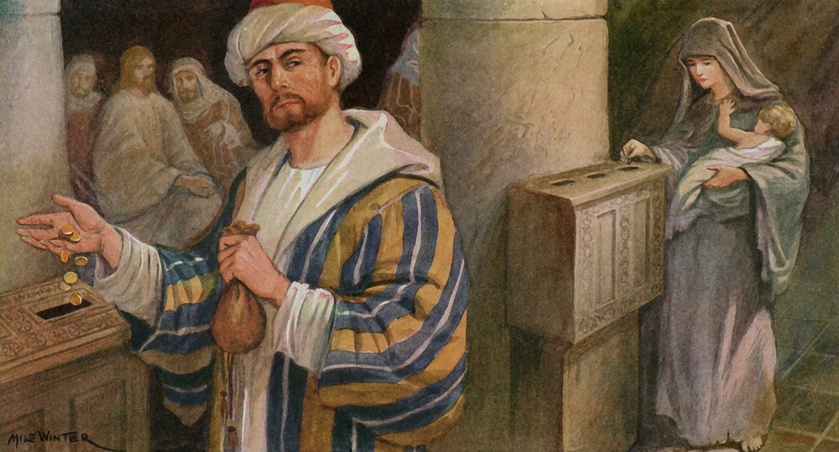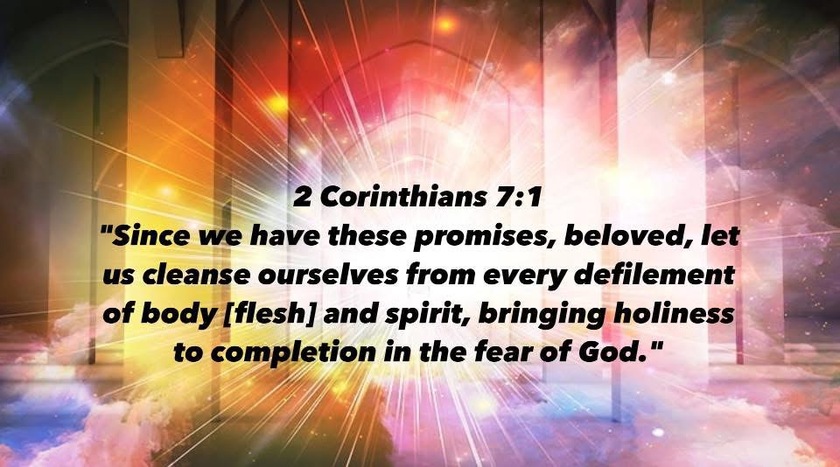"By What Authority?": Standing Boldly in Christ’s Name
Luke 20:1-2
One day, as Jesus was teaching the people in the temple and preaching the gospel, the chief priests and the scribes with the elders came up and said to him, "Tell us by what authority you do these things, or who it is that gave you this authority."
And so we begin the final week of our Lord's earthly life. Following Jesus' triumphant entry into Jerusalem, and after having cleared out all the moneychangers from the temple, Jesus is now teaching there.
The chief priests, scribes, and elders, religious authorities of the day, challenge Jesus, not out of curiosity, but to undermine his influence. They want to know the source of his authority because it threatens their own. Jesus disrupted the temple’s commerce, and he is now boldly teaching and preaching about His kingdom. His actions and words carry a weight they cannot ignore.
The question, "By what authority?" isn’t just a historical one, it echoes even into today. The various Christian churches differ on anointing and religious authority. And they will reject those who teach from an unrecognized authority. Most sects, denominations, and synods will establish for themselves a governing board of elders who determine and decide the validity of a particular ministry. And likewise, they will ignore and reject the authority of those who don't speak from their sheet music.
In Acts 4, for instance, Peter and John faced the same temple elite after healing a man and preaching in Jesus’ name. The authorities demand,
"By what power or by what name did you do this?" (Acts 4:7).
Peter’s response is bold, he points to Jesus, the crucified and risen one, as the source of their authority (Acts 4:10-12).
And what was that authority that Peter and John and Jesus himself pointed out?
Well let's begin with what Jesus said:
Luke 20:17-18
But he looked directly at them and said, "What then is this that is written: "‘The stone that the builders rejected has become the cornerstone’? Everyone who falls on that stone will be broken to pieces, and when it falls on anyone, it will crush him."
On this rock Jesus said he would build his church. And Peter affirmed it.
Acts 4:11-12 Peter answers the priests' questions about by which authority he does the things he's doing:
"This Jesus is the stone that was rejected by you, the builders, which has become the cornerstone. And there is salvation in no one else, for there is no other name under heaven given among men by which we must be saved."
In Luke 20:17-18, Jesus quotes Psalm 118:22, turning the religious leaders’ challenge back on them. He’s saying, in essence, "You’re the builders, and you’ve rejected me, but God has made me the cornerstone." It’s a bold claim: his authority comes from God’s design, not their approval. And now, in Acts 4:11-12, Peter picks up the same theme. Facing the same temple authorities, he doubles down: this Jesus, the one they rejected and crucified, is that cornerstone. His authority isn’t just about teaching or miracles, it’s about salvation itself. Peter and John aren’t acting on their own; their authority flows from their connection to Christ, proven by the healed man standing before the council.
This cornerstone idea ties back to what Jesus said in Matthew 16:18,
"On this rock I will build my church."
Whether you read "this rock" as Peter’s confession or Christ himself, the point stands: the church’s foundation isn’t human hierarchy but the reality of who Jesus is. The religious leaders in both scenes cling to their constructed systems, but Jesus and his followers point to a divine authority that supersedes it. And this tension continues today.
The clash between human systems and divine calling keeps resurfacing. Churches, denominations, and ministries still grapple with who gets to speak for God, often setting up boards or councils to validate authority, much like the chief priests and elders did.
Today, you see it play out in debates over ordination, doctrine, or even who’s "qualified" to lead a congregation. Some groups reject independent preachers or uncredentialed voices, echoing the temple elite’s suspicion of Jesus and the apostles. Meanwhile, others claim a direct anointing from God, bypassing traditional gatekeepers altogether, sometimes with boldness, sometimes with chaos. Peter and John faced this head-on in Acts 4. They didn’t have the Sanhedrin’s stamp of approval, but they had the evidence of a healed man and the name of Jesus. Modern believers face similar tests; whether it’s a pastor defying denominational norms to follow a conviction, or a layperson stepping out in faith without formal training. The cornerstone still breaks or crushes, depending on how we respond to it.
The fact of the matter is, the truth isn't hidden, and spiritual fruit bears witness for itself.
This tension over authority is really a deeper wrestle with truth itself. Pilate’s question, "What is truth?" (John 18:38), morphs into the chief priests’ "Who gave you the right?" in Luke 20, and it’s still with us: "Who gets to define and declare what’s true?" It’s the same root issue, just wearing different clothes across the centuries.
Truth isn’t some buried secret, accessible only to the elite who've completed academic studies. Jesus embodied it openly, teaching in the temple, healing in the streets, living it out for all to see. Peter and John followed suit; the healed man in Acts 4 was living proof, no credentials needed.
Take a look at Acts 4 again:
(vs.13) "Now when they saw the boldness of Peter and John, and perceived that they were uneducated, common men, they were astonished. And they recognized that they had been with Jesus."
So, the "authorities" determined that the apostles weren't educated enough to qualify for spiritual anointing, but recognized they did study under Jesus. They said the kinds of things Jesus said. They talked about matters of salvation in the same way Jesus did.
The religious authorities, those with the right titles, the right learning, and the institutional clout, look at Peter and John and can’t quite compute what they’re seeing. These are "uneducated, common men," not rabbis with formal training or scribes with pedigrees. By the standards of the day, they shouldn’t have the authority to speak, let alone heal or preach with such power.
Peter and John didn’t need a diploma because they carried the imprint of Christ, his words, his way, his authority. They echoed Jesus’ teachings on salvation, his confidence in God’s kingdom, and his unapologetic clarity. The fruit of their time with him was undeniable, even to those who wanted to discredit them. And this is the measure that remains even now. The fruit of the Spirit is the authority. Speaking the Word of God is the authority. Teaching what Jesus taught is the authority. Not being ashamed of Jesus is the authority.
Peter and John’s authority wasn’t a piece of paper or a title; it was the living imprint of Christ in them. The fruit of the Spirit; love, joy, peace, patience, and the rest (Galatians 5:22-23), is a mark of God’s presence that no human institution can fake or revoke. The Sanhedrin couldn’t legitimately argue with a healed man or the apostles’ clarity, even if they tried. Today, when someone’s life is changed, when the gospel rings true, when Jesus’ teachings are lived out with conviction, that’s the authority that echoes Acts 4 and Luke 20. It’s not about who ordained you or what board approved you; it’s about whether Christ’s life flows through you.
True authority isn’t borrowed from systems but birthed from intimacy with Jesus. The religious leaders saw it in Peter and John; we can still see it now in those who bear his fruit and speak his truth without apology. And no believer who loves God and who worships in Spirit and truth should compromise on this truth.
That’s the radical reality Jesus ushered in and Peter and John lived out: every believer, not just the elite or the ordained, is called to carry Christ’s authority, to worship in Spirit and truth (John 4:23-24), and to stand uncompromised on the gospel. It’s not a privilege reserved for the "qualified", it’s the birthright of everyone who loves God and bears His Spirit. Peter and John didn’t need the Sanhedrin’s permission because their authority came from Christ himself, sealed by the Holy Spirit. Today, no believer needs to shrink back or compromise because of a lack of human approval. The fruit of the Spirit, the Word of God, and an unashamed love for Jesus, these are the markers of our priestly calling. It’s a direct line to God, not mediated by gatekeepers.
We’re all his priests, all anointed to proclaim God’s truth, all accountable to reflect Christ without watering it down. We are His priesthood of all believers (1 Peter 2:9).




















